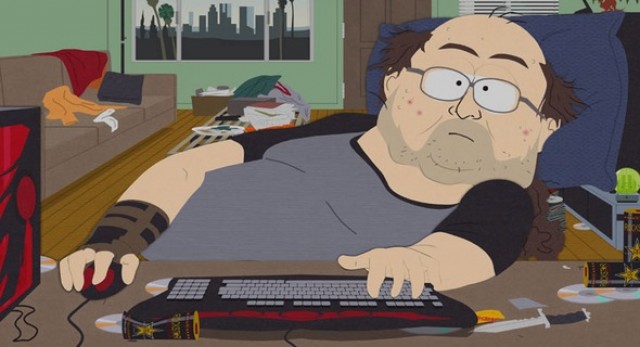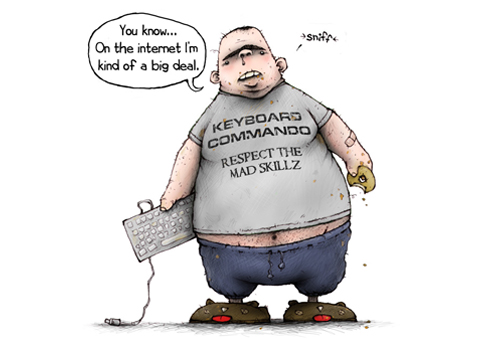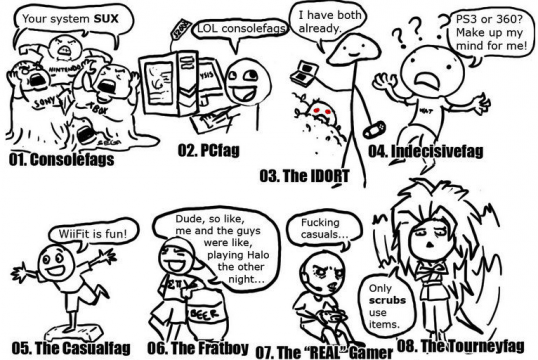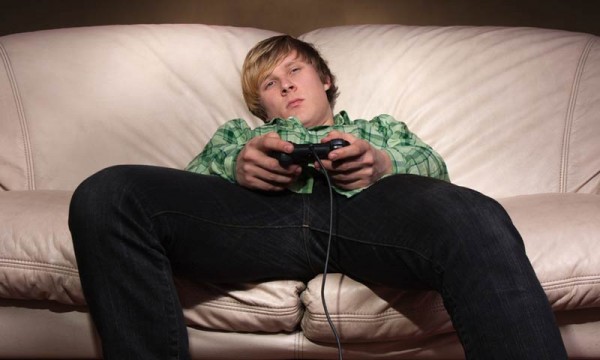
|
It’s amazing how far the video game industry has come. Initially, not many people could call themselves gamers during the introduction of Pong in the early 1970s. But now, games like Grand Theft Auto V prove that the audience for gaming has grown exponentially, as it’s made over $800 million globally within the first 24 hours of its launch. To put that number into perspective, no other entertainment property has ever made that much money during a launch. We’ve hit an era where game revenue far exceeds that of the movie and music industry, which is something that I would have never imagined as a child.
Yet, despite the massive popularity of the medium, the perception of gaming has not changed in over three decades. To me, gaming is still perceived as an activity for geeky nerds that live in their mom’s basement, have no life outside of their virtual fantasy charades, and are incapable of functioning in society. This is a stereotype that is constantly reinforced by the status quo and the media, despite the fact that nerd culture continues to gain more popularity as time goes on.
I believe that one of the biggest catalysts for the negative prevailing image of gaming is the word “gamer” itself. As a result, I’ve grown a distaste for the word for the following reasons:
1. Nobody Likes Being Stereotyped

Over the years, I’ve noticed a strange phenomenon that’s prevalent in the gaming community: some people don’t like to admit that they’re a gamer. These are people that I’ve seen play games for over ten hours a week, yet they refuse to associate themselves with that label. My mom is the absolute worst offender of this. I’ve watched her play hours and hours of Words With Friends and Candy Crush Saga on her phone, but the minute I directly point out that she’s playing video games, she’d retort with, “This isn’t a video game! I don’t know what you’re talking about, I’m not a gamer.” A group of my friends also fell victim to the same kind of logic, despite playing Mario Party for hours at college. It seems that the more popular a game is, the more likely it is to be associated with people that deny they’re gamers. Yet, the dictionary definition of a gamer is simply one who plays games, so they’re all technically gamers. What’s going on here?
Well, these people think that they’re above the stereotype of the label. They’re living proof that a majority of people do not fall into pathetic stereotypes, yet they continue to claim that they’re not gamers. As much as I wish that people would admit their hobby, I can’t blame them. In fact, I don’t want to be identified with these stereotypes as well, so I refuse to call myself a gamer too! Ben “Yahtzee” Croshaw, gaming critic and creator of Zero Punctuation from The Escapist, shared similar views in an editorial he wrote years ago. Despite being a renowned gaming critic on the Internet, he dislikes the word as much as I do and wishes that people would stop using it.
“No, you probably don’t have acne and don’t smell of milk (although some of you almost certainly do) but ‘gamer’ is a label, and whenever a label is used, an image of the stereotype attached to that label flips up unwarranted into your unconscious mind,” he said. “It is frustrating that this image exists, but it’s nothing anyone can help.”
When you have people working in the gaming industry that refuse to use the word gamer, then you know that there’s something seriously wrong with the word itself.
2. Gamer Labels are Destructive

The word gamer encourages people to take gaming as an identity. Personally, I choose to define myself by my personality and broad range of interests, but there’s a vocal minority on the Internet that are loud and proud of their gamer status. Unfortunately, so many variations of the word gamer exist that the gaming community has been segmented into deeper levels that tend to be hostile toward each other.
A term like gamer is only a standard label, as there are also terms like console gamers and PC gamers. People defined by these labels bicker about which platform is superior, acting as if it’s impossible for there to be fun games on other systems. There’s also the gamer girl, which makes it seem like being a woman who can also play video games is a noteworthy achievement. They also receive unneeded animosity for not being real gamers, which is another ridiculous term that people use when someone thinks that a person isn’t playing the “right” games or doesn’t have enough skill.
However, the two sub-labels of gamer that I absolutely hate are casual gamer and hardcore gamer, because the former carries an elitist attitude in its name alone. I can’t see why one term would be better than the other, yet I always see self-proclaimed hardcore gamers insulting others by calling them filthy casuals. So now, not only are gamers being insulted by society, but gamers are insulting fellow gamers as well!
I get that people like to identify with groups, but this is a little ridiculous. Other entertainment media don’t have popularized labels to define people, so why do video games need to be the exception? All of these labels just continue to harm the image of the gaming community, which further explains why people don’t want to be associated with these terms to begin with.
3. Labels Make People Feel Insecure

I had the pleasure of interviewing one of my good friends, 22-year-old Jose Baez, about video games for a news writing class a couple of years ago. When I started to ask him about his gaming habits, he told me that he was afraid of liking video games too much.
“As I got older, I started to realize that people didn’t care about video games as much as I did. It turned out my devotion for games wasn’t deemed normal by society, but was normal for a typical gamer,” he said. “I am constantly judged, especially by my grandfather. I try to avoid playing games when he is around.”
I’ll never forget when he told me this, since I completely empathize with his sentiment. Despite my attachment for portable systems, I never brought them outside of my house as a teenager because I was afraid that people would immediately label me as a gamer. Once someone thinks of you as a gamer, negative stereotypes become stuck to your image, especially if the person who sees you doesn’t know you that well.
Thankfully, both of us have become less obsessed with public image after all of these years. Plus, I often see encouraging words from people like the wonderful Brian Altano, Executive Editor at IGN, that re-enforce these ideals.
If you're afraid to play a video game in public you should be more afraid that you'll probably die without anyone loving you for who you are
— Brian Altano (@agentbizzle) November 6, 2013
I love that tweet so much because nobody should feel bad about who they truly are. The fact that people are afraid to play games in public because of general perception makes me hate the word gamer more than anything else.
I’m not trying to start a revolution and get the community to stop using the word. Hell, if you like using the word gamer, then go for it! I’ve just grown a distaste for the word and the culture behind it after all of these years, so I felt like I should voice my opinion on the matter. With that said, what do you think about the word gamer or the perception of gaming? Feel free to share your thoughts below.




 ShareThis
ShareThis







